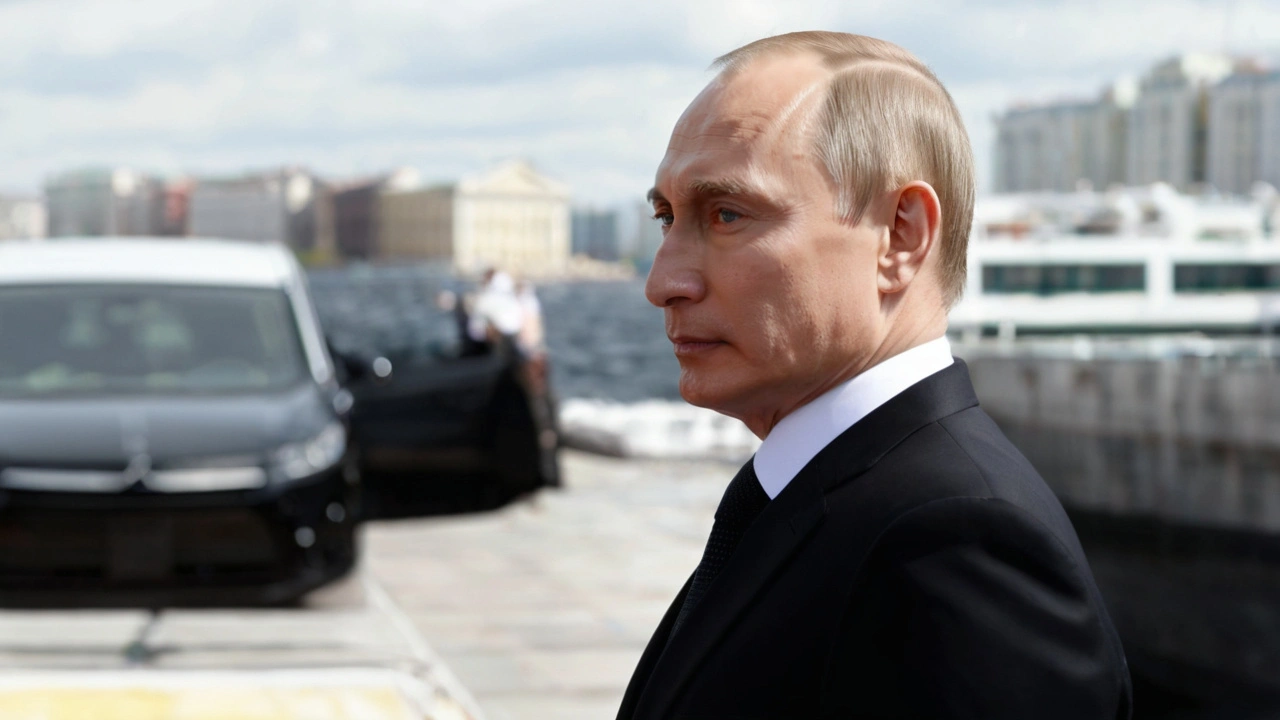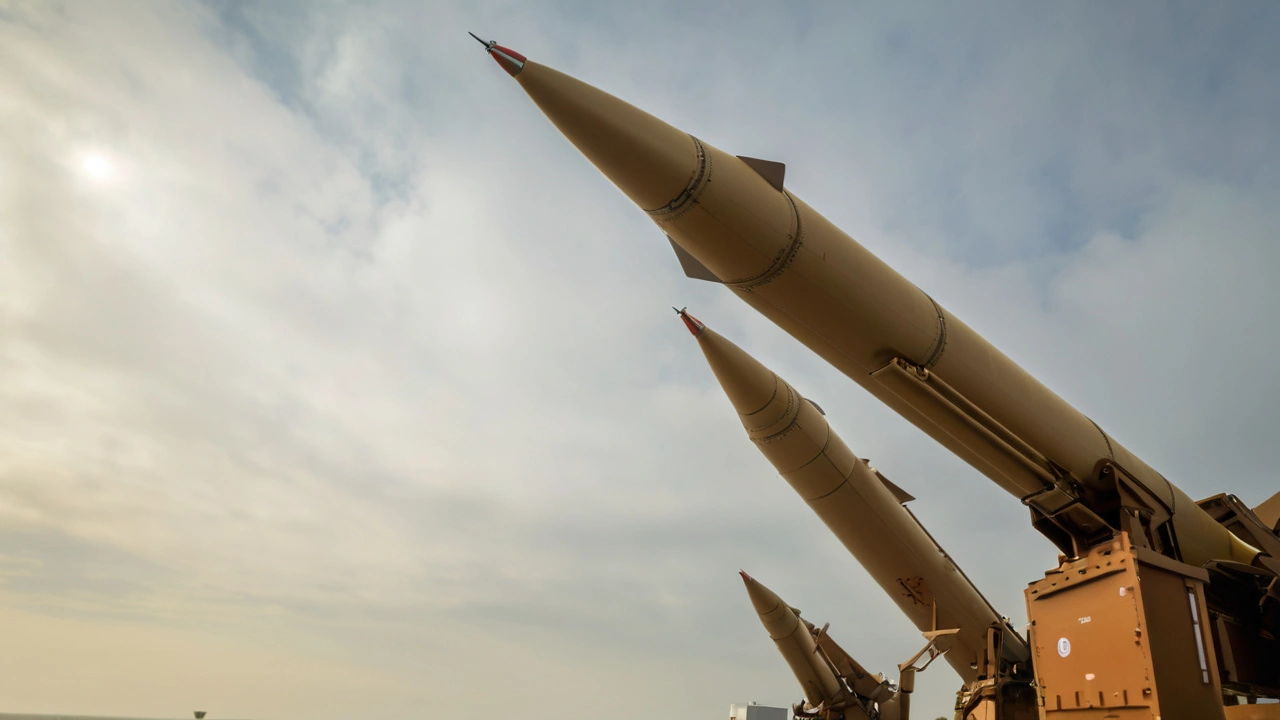Iran Poised for Missile Assault on Israel Amid Rising Tensions: US Officials
The geopolitical landscape of the Middle East has once again reached a boiling point, with US officials revealing that Iran is moving missile launchers and conducting a series of military drills. These activities are speculated to be preparatory actions for potential strikes on Israel. The escalating situation follows the controversial assassination of Hamas' political leader Ismail Haniyeh, an event that has ignited fervor across the region.
The United States government is deeply enmeshed in efforts to thwart any forthcoming attacks on Israel. This cooperation hearkens back to April, when Iran's unprecedented strikes on Israel led to heightened coordination between the two allies. The stakes have been raised further with the arrival of the Chief of the United States Central Command (CENTCOM) in Israel. His presence signifies a robust collaborative effort aimed at bolstering Israeli defenses and ensuring readiness against potential Iranian aggression.
Amid the cacophony of military maneuvers, intelligence reports, and diplomatic exchanges, the fluid nature of the situation has both nations on high alert. Israeli media outlets have speculated that Tel Aviv might consider a pre-emptive strike on Iran, should incontrovertible evidence of an imminent Iranian attack surface. Such a move would significantly escalate the conflict and potentially engulf the region in broader hostilities.
Iran's Revolutionary Guard Corps Vows Retaliation
The threat from Iran is not merely speculative rhetoric. The Islamic Revolutionary Guard Corps (IRGC) has publicly declared its commitment to avenging Haniyeh's assassination. This is not just a vow of retribution; it's a promise of 'severe punishment at the appropriate time, place, and manner.' The threatening language underscores the gravity of the current situation and highlights the potential for significant military clashes.
The IRGC has also pointed fingers at the United States, accusing it of playing a role in the assassination. Washington, however, has categorically denied any involvement in the killing of the Hamas leader. This denial notwithstanding, the atmosphere between Iran, Israel, and the United States remains fraught, with each step carefully watched and analyzed by international observers.
Diplomatic efforts are concurrently underway, spearheaded by US Secretary of State Antony Blinken. In a bid to de-escalate the tension, Blinken has been vocal in urging all involved parties to refrain from further provocations. His calls for restraint are aimed at preventing a full-blown military conflict that could have devastating consequences not just for the Middle East, but for global stability.
Recent Escalations and Broader Implications
The assassination of Ismail Haniyeh is but one in a sequence of recent violent incidents that have ratcheted up tensions in the region. Earlier, Israel conducted a strike on an Iranian diplomatic building in Syria, prompting a swift retaliation from Iran in the form of drone and missile attacks. These exchanges form a disturbing pattern of tit-for-tat actions that have the potential to spiral into uncontrollable conflict.
The strategic movements of Iran’s missile launchers have not gone unnoticed. Satellite images and intelligence reports have indicated significant mobilization, leading analysts to predict possible launch scenarios. Such military posturing serves multiple purposes: it acts as a deterrent, a statement of capability, and a preparation for potential offensive operations. Understanding the multiplicity of these actions is crucial for predicting future developments.
For Israel, the prospect of a retaliatory strike from Iran is a scenario that is taken with utmost seriousness. Defensive measures have been ramped up, and military personnel are on heightened alert. The coordination between US and Israeli defense forces is critical in this high-tension environment. Both nations are leveraging their intelligence and logistical capabilities to preempt and counter any strikes effectively.

Public Sentiment and Regional Stability
Public sentiment in Israel and Iran adds another layer of complexity to this situation. In Israel, the fear of missile attacks has led to various precautionary measures among civilians. Emergency drills and public safety announcements have become more frequent as the threat looms larger. In Iran, nationalist fervor and calls for revenge dominate public discourse, with many supporting the government's hardline stance against Israel.
In the broader context of Middle Eastern politics, these developments have far-reaching implications. The potential for conflict between Israel and Iran could draw in other nations, either as allies or adversaries. Countries like Russia and China, with vested interests in the region, are closely monitoring the unfolding events. Their involvement could alter the dynamics significantly, adding layers of complexity to an already volatile situation.
In essence, the assassination of Hamas’ political leader has set off a chain reaction, bringing Iran and Israel to the brink of conflict. The international community watches with bated breath, as diplomatic and military efforts play out on the global stage. The stakes are high, and the need for measured actions and diplomacy cannot be overstated.
The coming days and weeks will reveal whether the involved parties can navigate the treacherous waters of Middle Eastern politics without drifting into open conflict. For now, the world remains on edge, hoping for a resolution that favors dialogue over destruction.






Write a comment